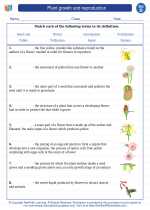Plant growth and reproduction -> pollination
Pollination: Explained
Pollination is the process by which pollen is transferred from the male reproductive organs of a flower to the female reproductive organs, thereby enabling fertilization and the production of seeds. This crucial process is essential for the reproduction of flowering plants, and it occurs in various ways across different plant species.
Types of Pollination
There are two main types of pollination: self-pollination and cross-pollination.
- Self-pollination: This occurs when pollen is transferred from the anther to the stigma of the same flower or to another flower on the same plant.
- Cross-pollination: This involves the transfer of pollen from the anther of one flower to the stigma of a flower on a different plant of the same species.
Agents of Pollination
Pollination can be carried out by various agents, including:
- Wind: Some plants rely on the wind to carry their lightweight pollen grains to other flowers.
- Animals: Insects, birds, bats, and other animals can inadvertently transfer pollen as they visit flowers in search of nectar or food.
- Water: Aquatic plants use water to transport their pollen from one flower to another.
Importance of Pollination
Pollination is crucial for maintaining biodiversity and ensuring the production of fruits, vegetables, and seeds. Without pollination, many plant species would not be able to reproduce, and the ecological balance would be greatly disrupted.
Study Guide
To better understand pollination, consider the following study guide:
- Define pollination and explain its significance in the plant life cycle.
- Describe the differences between self-pollination and cross-pollination, providing examples of plants that utilize each method.
- Identify and discuss the various agents of pollination, explaining how they facilitate the transfer of pollen.
- Examine the impact of pollination on agriculture and food production, highlighting the role of pollinators in crop yield.
- Discuss the potential consequences of a decline in pollinator populations and the measures that can be taken to protect pollinators and their habitats.
By thoroughly exploring these topics, you can gain a comprehensive understanding of pollination and its significance in the natural world.
.◂Science Worksheets and Study Guides Fourth Grade. Plant growth and reproduction
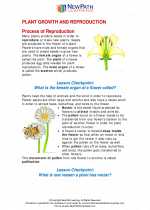
 Worksheet/Answer key
Worksheet/Answer key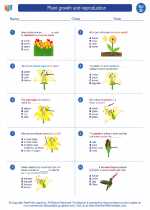
 Worksheet/Answer key
Worksheet/Answer key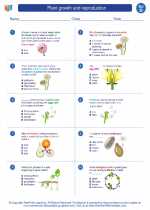
 Worksheet/Answer key
Worksheet/Answer key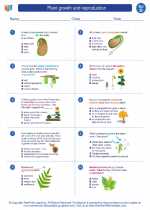
 Vocabulary/Answer key
Vocabulary/Answer key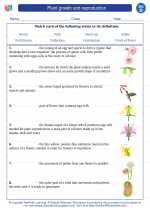
 Vocabulary/Answer key
Vocabulary/Answer key